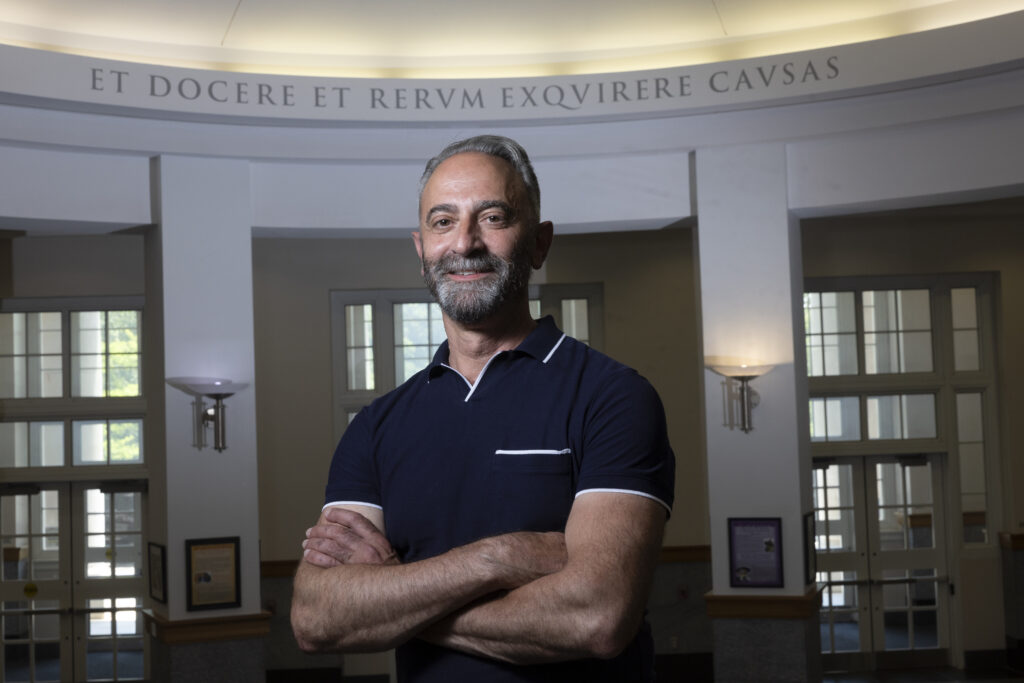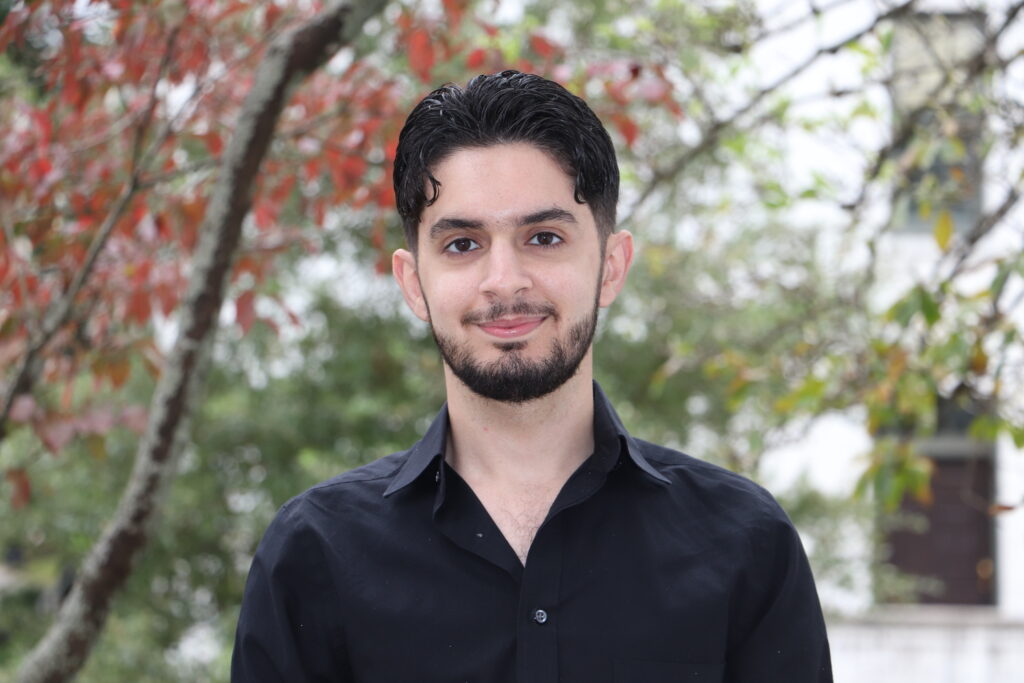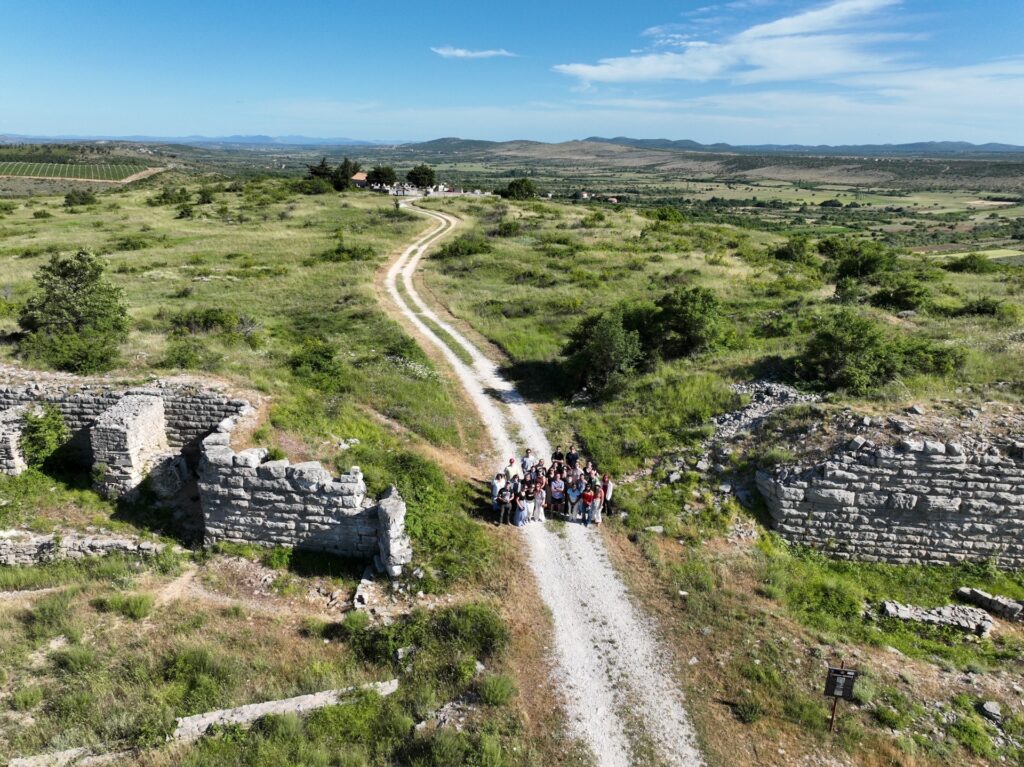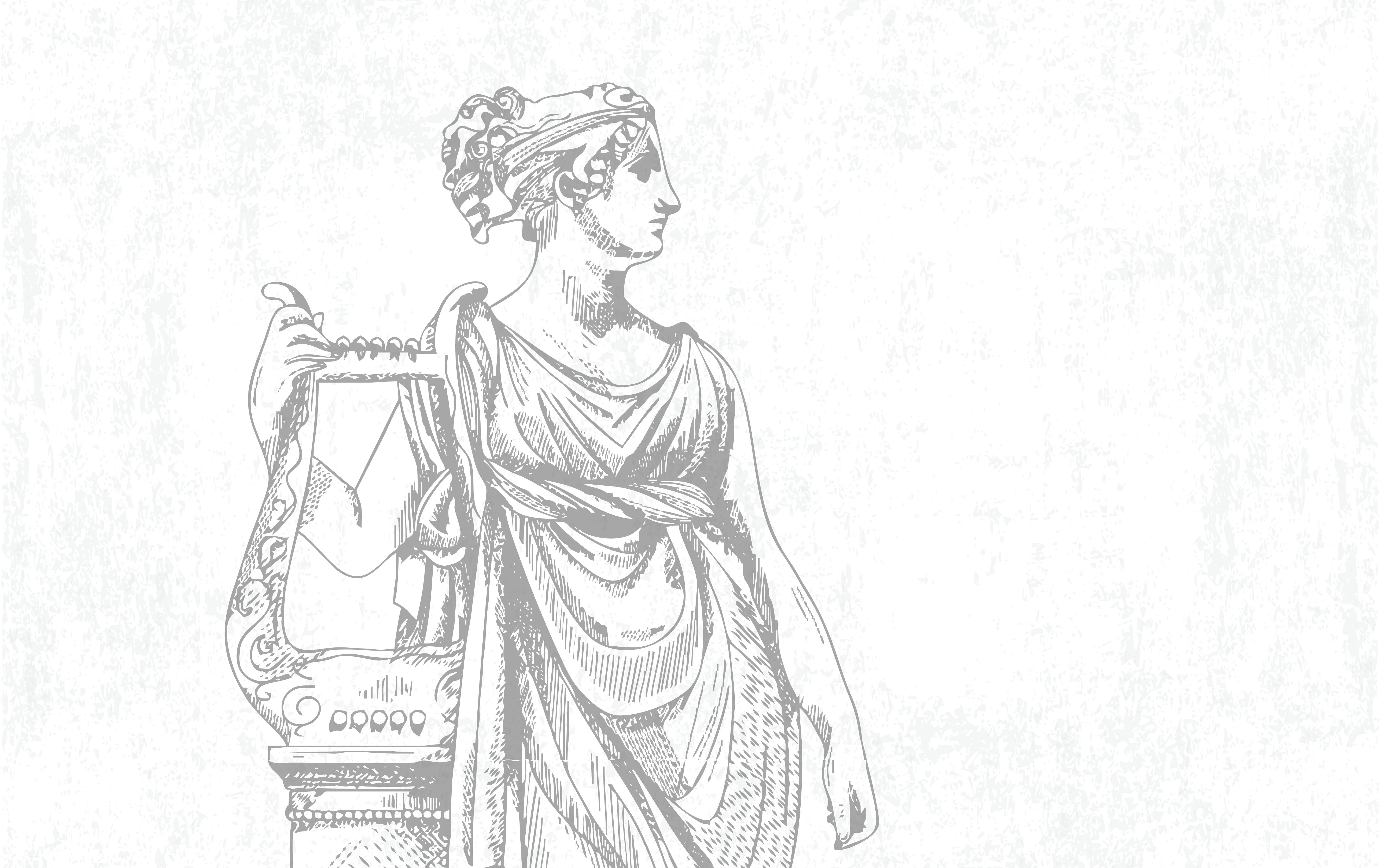Et docere et rerum exquirere causas
Translation: To teach and inquire about the nature of things.”
When students make their way to the top of the Miller Learning Center, they may notice the Latin phrase above—the university’s motto—carved into the walls. Although Latin is considered an “ancient language,” more University of Georgia students can translate the motto than you might think.
The Classics and ancient languages have been part of UGA’s curriculum since its charter nearly 240 years ago. Back then, all students had to take Latin and Greek. Though no longer a prerequisite, the so-called dead languages are still very much alive at UGA.
The department has thrived due to its willingness to adapt. From 1948 through 1980, James W. Alexander led the Classics through a renaissance and brought the department to the national stage.
Alexander pioneered Classics-in-Translation courses, expanding the department’s curriculum by using translated ancient texts to teach ancient culture and civilization, evolving from only offering traditional language courses. It was a trailblazing move at the time.
Richard A. LaFleur, Franklin Professor of Classics Emeritus and Alexander’s successor as department head from 1980 through 2001, says while not everyone wants to learn an ancient language, many are curious about ancient culture, mythology, and religion.
Alexander convinced administrators to allow these new courses to count toward required arts and sciences credits, which boosted enrollment.
“It opened up a new world to students looking to fill degree requirements,” LaFleur says. “Students could choose not just from authors like Shakespeare, but they could also choose from Classical Greek and Latin literature.”

The Classics Today
Today, the Franklin College of Arts and Sciences Department of Classics’ enrollment holds strong, and the Latin program’s numbers are particularly impressive. The Modern Language Association’s 2023 reports declared UGA’s Latin program the country’s largest—a title it has maintained for more than 15 years—topping more than 2,450 other colleges and universities.
Often, when students take their first course in the department, they get hooked. Many continue to take Classics courses throughout their college career or even add a major or minor to their degree path, says Mario Erasmo, a professor of Classics and current head of the department.
Mohammad Al Eethawi, a rising senior from Buford, is one of those students.
After beginning his studies at UGA, he learned that “everything is built upon Classics,” from much of Western literature to Disney movies. He fell in love with the subject matter and wanted to immerse himself further. He looked for more subjects, like scientific naming, that would aid him in his studies as a pre-med student, and he added a minor.
“Studying Classics not only shapes my way of viewing education but also the world in general,” he says.
Al Eethawi conducted independent undergraduate research under the direction of Erasmo, who encouraged him to explore medicine in antiquity. So he analyzed the words of ancient physicians like Galen and how their ideas tie into modern medicine.
One of Al Eethawi’s main takeaways: The past influences our future. He gained a sense of hope after learning how innovators in the ancient world progressed and overcame medical obstacles. That adaptability bodes well for our ability to overcome our own challenges in modern medicine.
“Without the colors of the past, you don’t have a complete picture of the future,” Al Eethawi says. “And I’m not just learning about medicine now; I’m learning about medicine in the past, which predicts the future in a way.”

Classically Trained
LaFleur says Latin is “quintessentially interdisciplinary,” meaning that students do not just learn a language but also learn how Latin translates into their chosen field of study. Students leave the program more equipped to excel in their professions, which range from medicine and law to business and agriculture.
“Almost every profession in our culture today has analogs in the ancient world,” he says. “So the more you study the roots of your profession, the more broadly informed you’re going to be.”
In a world increasingly focused on advancements in STEM fields, there is a need to integrate Classical studies with modern sciences now more than ever.
Many data scientists study the Classics and humanities to sharpen analytical thinking, writing skills, and problem-solving by viewing their work through a historical, real-world lens. The department is creating a curriculum that would bridge the perceived divide between STEM disciplines and humanities, a divide that Erasmo says is artificial.
After all, the words science, technology, engineering, and mathematics derive, like the disciplines themselves, from Greek and Latin.
This year, the Classics department hired a new faculty member focused on data science pedagogy, and it is the first program in the country to do so.
“At UGA, the oldest college is Arts and Sciences. Humanities and science go side by side,” Erasmo says. “STEM and data science should insert themselves more into Classics and vice versa.”
The Classics Department’s motto is “preparing you for what comes next,” which is Erasmo’s inspiration as well. When he thinks about the future, he sees the department continuing to transform, finding new ways to encourage interdisciplinary study and prepare students for their futures.
“I would love for us to keep reinventing,” Erasmo says. “Instead of saying, ‘I wish we could do that,’ just saying, ‘Let’s join in.’”

Taking the Road to Antiquity
The Colosseum in Rome, the ruins of ancient Greece, ancient forts like Vindolanda in England—remnants of the ancient world exist in the modern age, waiting to be explored. The Classics Department takes its students beyond the classroom, giving them up close and personal experiences with historic locations.
The department houses one of UGA’s founding faculty-led study abroad programs, UGA in Rome, which began in 1970. Since then, the department has added two more programs—UGA Classics Europe: Unearthing the Past and UGA-Franklin Croatia: Heritage Conservation and Archaeology—and offers affiliate programs with UGA at Oxford and Cortona, Italy.
Erasmo leads Unearthing the Past, a faculty-led Maymester program traversing Europe from Greece to Scotland, stopping at ancient sites along the way.
“I think it’s good for our students to see other cultures in their contexts,” Erasmo says. “It’s essential for students to get out there and for us to lead them in our own groups. We teach at locations and at museums, on street corners, in churches, archaeological sites, anywhere we can.”
These programs are open to UGA students of all disciplines. The study abroad programs have become something of a recruiting tool for the department, with many students adding second majors or minors inspired by their trips.
“We put a lot of work into it,” Erasmo says. “But what we get out of it is seeing students completely engaged, completely immersed in classical antiquity and its reception, and it helps us broaden our major and minor bases.”


